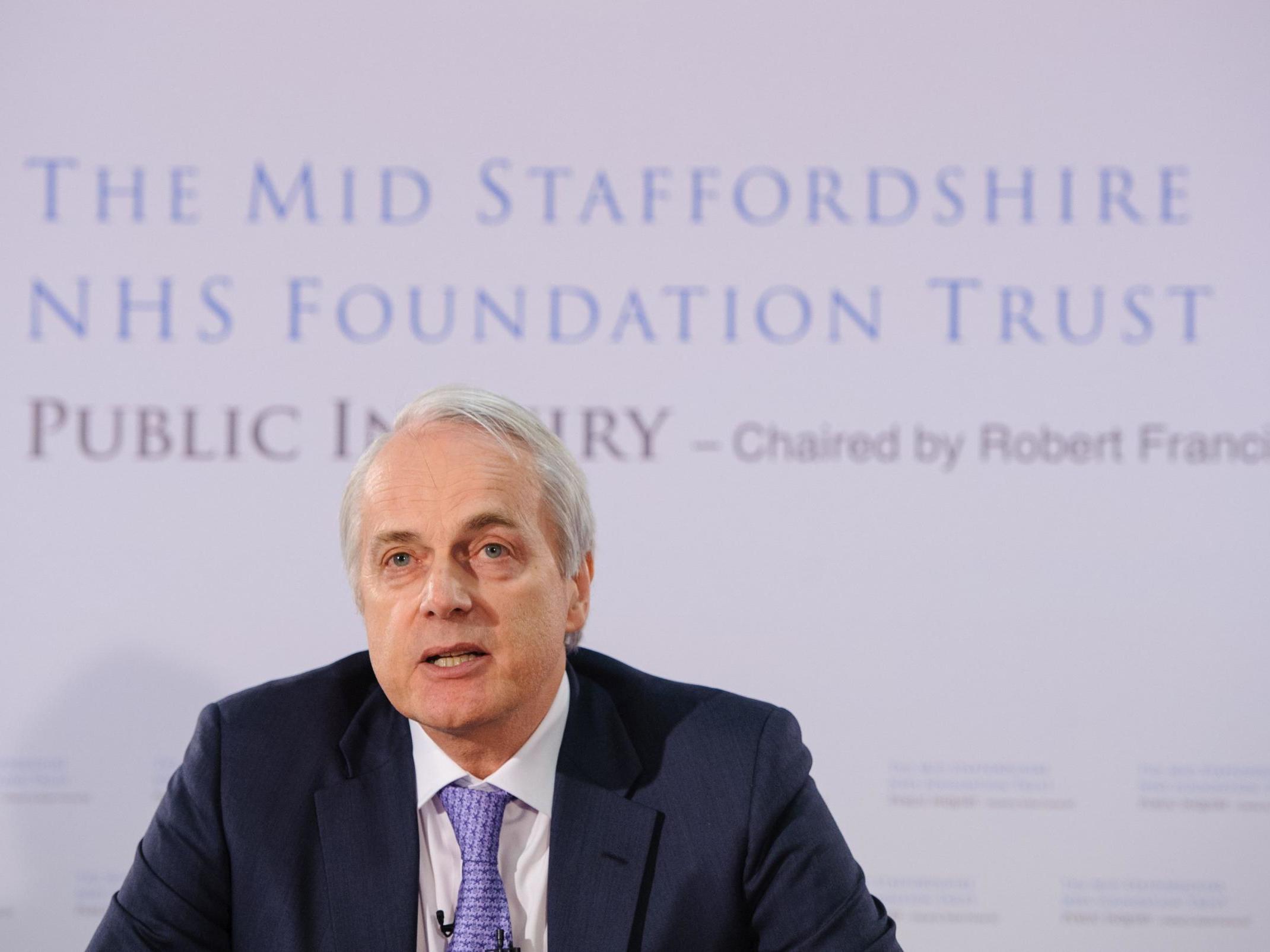Analysis: How did the NHS system miss another care scandal under its nose?
Health correspondent Shaun Lintern says the role of regulators must be put under the microscope

The first report from the 60 experts working through the 1,862 complaints of poor care at the Shrewsbury and Telford Hospital Trust has delivered a devastating analysis of the health body’s practices, doctors, and midwives over a 20-year period.
It describes a culture that put the target of low caesarean births above the wishes of mothers. There was a flagrant disregard for rules on using drugs that saw mothers medicated against their wishes and forced down the route of a vaginal birth, which for some was an horrific experience ending in death or disability.
But what the report does not do is tell us how the wider NHS system allowed such appalling care to go on for so long without effective challenge.
Poor care in the NHS does not happen in secret. People and systems always know, the issues are discussed in hushed tones outside of official channels. In too many places it’s about avoiding a scandal, protecting reputations and not embarrassing the minister as the public inquiry into the Mid Staffordshire disaster was told.
In every major NHS scandal, the regulators, those responsible for overseeing care on the front line, have always been found to be at fault. In many ways their failure is the worst, they are the safety net to prevent death and disability. When they fail, patients suffer on a large scale.
It is sobering to consider that while other investigations – such as the Mid Staffordshire public inquiry or the Morecambe Bay inquiry – were taking place, systemic failures were killing women and babies in Shropshire and no one apparently knew. Or if they did, no action was taken.
The first Ockenden report does not go near such difficult topics this time round. This report was about the care of women and babies on wards – and steps that can be taken to improve that care.
There is only a minimal reference to the local NHS system around the Shropshire trust and regulators such as the Care Quality Commission.
It is known for example that a report in 2013 by local clinical commisisoning groups into maternity concerns at the trust failed to identify what was really happening. How such errors were made must be examined in detail and those who hold positions of authority must account for their action or inaction.
Donna Ockenden, the head of the inquiry, has made clear in the report – and when speaking to The Independent – that she will be looking closely at how the wider health system let down families in Shropshire.
She must redouble this effort to put NHS England, the CQC, the clinical commissioners, local GPs and the alphabet soup of health bodies that all had oversight of the trust under a microscope.
Her inquiry must answer how such terrible care on the scale now revealed was able to go on for so long without regulators taking action to stop it.
After so many inquiries and lessons not learnt, we cannot be confident the NHS system that is wrapped around local hospitals is strong enough to keep patients safe.
The Ockenden inquiry’s final report, due in 2021, must help get us answers on these key questions for the sake of patient safety everywhere.
Subscribe to Independent Premium to bookmark this article
Want to bookmark your favourite articles and stories to read or reference later? Start your Independent Premium subscription today.

Join our commenting forum
Join thought-provoking conversations, follow other Independent readers and see their replies